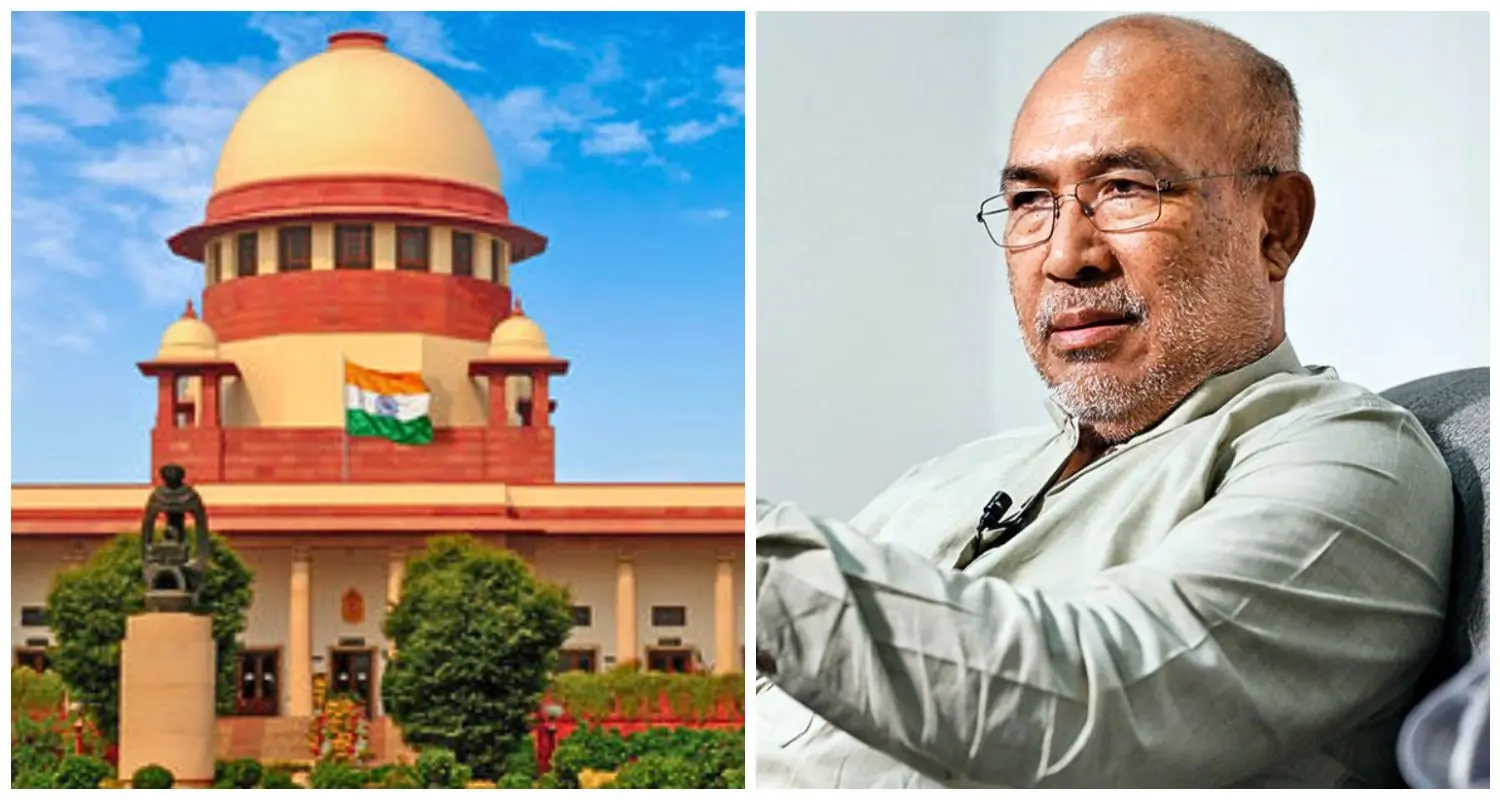The Supreme Court, on Monday, February 3, 2025, directed the submission of a forensic report examining certain audio recordings that purportedly capture Manipur Chief Minister N. Biren Singh making statements suggesting his involvement in the state’s ethnic violence. A bench comprising Chief Justice of India (CJI) Sanjiv Khanna and Justice Sanjay Kumar passed the order in response to a writ petition filed by the Kuki Organization for Human Rights Trust, which sought an independent investigation into the recordings. The forensic report, once ready, is to be submitted in a sealed cover, with the matter scheduled for further hearing in the week commencing March 24, 2025.
(Detailed report on the said leaked audio may be read here)
Dispute over audio authenticity and its implications
Senior advocate Prashant Bhushan, representing the petitioner, argued that the recordings were previously analysed by a private forensic lab, Truth Labs, which concluded with over 93% certainty that the voice in the tapes belonged to the Chief Minister. The recordings, according to Bhushan, allegedly feature Biren Singh admitting that he permitted Meitei groups to loot state armouries and assured their protection from legal consequences. He emphasised that these statements, made in a closed-door meeting, were secretly recorded and later leaked, exposing a severe case of incitement and abetment of communal violence.
In response, Solicitor General (SG) Tushar Mehta, representing the State of Manipur, raised preliminary objections, contending that the petitioner should first approach the High Court before directly moving the Supreme Court. The SG further informed the bench that an FIR had already been registered regarding the matter and that an investigation was underway. Authorities had also contacted the Twitter accounts that had uploaded the audio clips to verify their authenticity, and the tapes had been sent to the Central Forensic Science Laboratory (CFSL) for examination. Additionally, the SG criticised the petitioner’s motives, arguing that the organisation harboured a “separatist mind-set” and was attempting to “keep the pot boiling” despite the state’s efforts to restore normalcy following the ethnic clashes in 2023 and 2024.
“Petitioner has ideological inclinations.. Separatists sorts.. There is a report by the three-judge committee. Only to keep the pot boiling (such petitions are filed),” SG Mehta saida, as per a report in LiveLaw.
Judicial proceedings and future course of action
CJI Khanna, while refraining from commenting on the veracity of the recordings, inquired about the status of the forensic examination and requested that the FSL report be submitted within six weeks.
“The State (Manipur) is limping back now (after witnessing ethnic clashes in 2023 and 2024). We have to also see if this Court should hear this or the High Court should,” CJI Khanna said, as per the report in LiveLaw.
The bench directed that the report be filed in a sealed cover before the next hearing. The court also left open the preliminary objection raised by the SG regarding jurisdiction, implying that it would be addressed in due course.
“I have not gone into the contents and veracity of the recordings, when will SFL reports come?” CJI Khanna asked.
During the proceedings, Justice Sanjay Kumar disclosed that he had previously attended a dinner hosted by the Manipur Chief Minister upon his elevation to the Supreme Court. He openly invited the petitioner to express any concerns regarding his participation in the case. However, Bhushan stated that the petitioner had no objections to Justice Kumar continuing to hear the matter.
Previously, a bench led by former Chief Justice of India D.Y. Chandrachud had asked the petitioner to furnish material substantiating the authenticity of the recordings, following which the Truth Labs report was submitted. With the Supreme Court now awaiting the forensic findings from CFSL, the next hearing on the matter has been scheduled for 24th March 2025, where the court is expected to decide on the further course of action based on the report’s findings.
Related:

